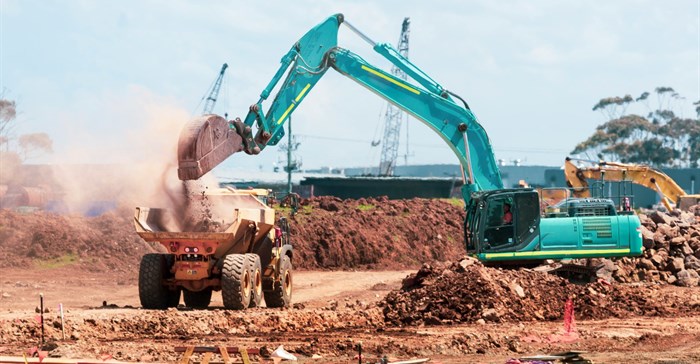
Related
Top stories


EducationFrom adversity to opportunity: African education’s revival strategies
Sanjeev Mansotra 1 day



Marketing & MediaThe Odd Number named Financial Mail AdFocus Mid-Sized Agency of the Year
The Odd Number 2 days

More news












These infrastructure projects have been steadily gaining momentum, turning many parts of the country into construction zones. One such project is the N2 and N3 Upgrade Programme which is expanding the capacity of our national highways in Kwa-Zulu Natal
It includes the R2.4bn Ashburton Interchange Project in the Msunduzi Municipality in KwaZulu-Natal, which will see additional lanes being constructed. This section of highway has been hamstrung by chronic traffic congestion that prevents the quick movement of freight.
With more than 60% of goods transported through this corridor, the road is a key economic artery for the movement of goods from the Port of Durban, the largest port in Sub-Saharan Africa, to the rest of South Africa and the continent.
We see this project as central to our country’s competitiveness and to the growth of the economy. Through the smooth movement of goods and services across our economy, we can enhance efficiencies, attract investment and boost job creation.
Importantly, the upgrades will not only reduce the overall travel time for road freight transport but also ensure increased safety for all road users.
Government has placed infrastructure development at the heart of our country’s economic recovery plan because it is widely known that infrastructure has a powerful multiplier effect on restoring economic growth, creating new jobs and protecting livelihoods.
Through the Ashburton Interchange Project, we have created a number of direct jobs and indirect jobs for surrounding communities. The project is also helping draw more young people into the productive sectors of the economy through training and learnerships.
The Ashburton Interchange Project adds to other projects already at an advanced stage of construction on the N3, such as the widening a section of the Camperdown Interchange and the road upgrade between Dardanelles and Lynnfield Park in Kwa-Zulu Natal.
Another major highway upgrade being undertaken at an investment of over R10bn is the N2 Wild Coast road project which connects the Western Cape, Eastern Cape, KwaZulu-Natal and Mpumalanga.
Once completed, the route will shorten travel times, making it 1,5 hours faster for light vehicles and 3 hours faster heavy freight transport
This will significantly reduce vehicle carbon emissions and the time-cost saving to motorists and freight operators will be approximately R1.5bn per annum.
The project will also see the construction of the highest bridges on the African continent with the R1.65bn cable-stay Msikaba Bridge. The bridge will be 580m ilong and be 195m high, showcasing our country’s engineering excellence.
Infrastructure projects similar to these road transport projects are being prepared and packaged for investors by Infrastructure South Africa (ISA). ISA is also driving project preparation to enhance transparency and eliminate key risks at the earliest possible time.
Our logistics infrastructure investments also extend to our nation’s ports as we address slow turnaround times. Following an internal diagnostic review by Transnet, there are plans to invest R160bn to address the infrastructure.
It includes procuring 16 gantry cranes and acquisition of four ship-to-shore cranes to address slow turnaround times affecting the docking and offloading of containers at the port. Transnet also plans to deepen and lengthen two berths at its Durban Container Terminal Pier 2 which handles about 65 percent of the country’s containerised cargo as part of efforts to ease backlogs.
Government is addressing concerns of corruption and maladministration in the construction industry through our anti-corruption strategy designed specifically for the sector. It sets out to detect and prevent corruption and we are working closely with the Special Investigating Unit to execute the strategy.
As we gather pace on our infrastructure development, we are certain to see the benefits in our economy and on jobs. Through our investments in infrastructure we are setting the foundation for a much brighter future.
SAnews.gov.za is a South African government news service, published by the Government Communication and Information System (GCIS). SAnews.gov.za (formerly BuaNews) was established to provide quick and easy access to articles and feature stories aimed at keeping the public informed about the implementation of government mandates.
Go to: http://www.sanews.gov.za